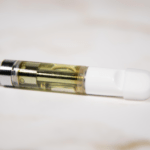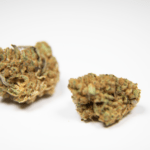Cannabidiol, or CBD, has gained popularity for its potential health benefits without the high associated with THC (tetrahydrocannabinol). Unlike THC, CBD is non-psychoactive, making it an appealing choice for people looking to relieve symptoms of various ailments without altering their mental state. Research is ongoing, but evidence suggests that CBD may be beneficial for a range of conditions. Here’s a look at some specific ailments CBD may help with, along with the science behind it.
1. Chronic Pain and Inflammation
CBD is widely used for managing chronic pain and inflammation, with studies supporting its effectiveness. According to a 2018 review published in Frontiers in Pharmacology, CBD interacts with receptors in the endocannabinoid system (ECS), which plays a role in pain perception and inflammation. The review found that CBD’s anti-inflammatory properties may help reduce pain from conditions such as arthritis, multiple sclerosis, and other inflammatory conditions.
In a 2019 study in the European Journal of Pain, researchers found that CBD applied topically could help reduce pain and inflammation associated with arthritis. Participants reported less pain and improved movement in affected areas, making CBD a promising option for those with joint and muscle pain.
2. Anxiety and Depression
CBD has shown potential as a natural treatment for anxiety and depression. A 2020 study in the Journal of Clinical Psychology found that CBD may help reduce social anxiety and general anxiety symptoms without the side effects of traditional pharmaceuticals. CBD works by interacting with serotonin receptors, which are involved in mood regulation.
Another 2019 study published in the Permanente Journal revealed that 79% of participants experienced reduced anxiety within the first month of using CBD, while 66% reported improved sleep. These findings suggest that CBD may provide a calming effect and reduce anxiety, making it beneficial for individuals with stress-related disorders.
3. Epilepsy and Seizure Disorders
One of the most well-documented uses of CBD is in treating epilepsy and seizure disorders. In fact, the FDA has approved a CBD-based medication called Epidiolex for treating rare forms of epilepsy, such as Dravet syndrome and Lennox-Gastaut syndrome. In clinical trials, patients experienced a significant reduction in the frequency and severity of seizures.
A 2017 study published in the New England Journal of Medicine demonstrated that patients taking Epidiolex experienced a 39% reduction in seizures, highlighting CBD’s potential for managing seizure disorders safely and effectively.
4. Sleep Disorders
CBD may also be effective for improving sleep quality. While it doesn’t act as a sedative, it can help address the root causes of sleep issues, such as anxiety, pain, or restlessness. A 2019 study published in the Permanente Journal found that 66% of participants reported better sleep after one month of CBD use. Many people use CBD to help relax before bed, allowing for a more restful night’s sleep without feeling groggy in the morning.
5. Skin Conditions
Topical CBD has been found useful for managing skin conditions like acne, eczema, and psoriasis. CBD’s anti-inflammatory properties can help reduce redness and swelling, while its antibacterial effects may prevent breakouts. According to a 2020 study in Clinical, Cosmetic and Investigational Dermatology, CBD showed promise in reducing sebum production and inflammation, making it a natural option for acne-prone skin.
A Natural Aid for Multiple Ailments
CBD shows promise as a natural treatment for various ailments, including chronic pain, anxiety, epilepsy, sleep disorders, and skin issues. While more research is needed, current findings suggest CBD could be a valuable tool for managing symptoms without the side effects of traditional medications. Always consult a healthcare provider to find the right approach and dosage.






